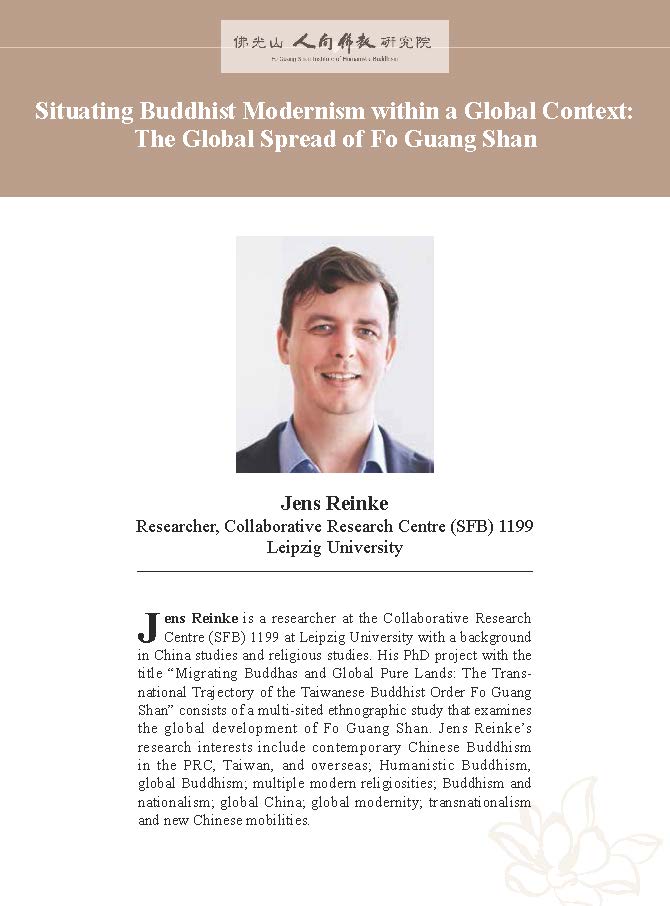
|
Situating Buddhist Modernism within a Global Context: The Global Spread of Fo Guang Shan
作者
Jens Reinke
單位職稱
Researcher, Collaborative Research Centre (SFB) 1199, Leipzig University
編者
妙凡、程恭讓總編輯
摘要
Only in the last decades has modern Buddhism become a serious topic of academic investigation. Today, however, the field is flourishing. Modern Buddhism in its many forms is studied in many languages and disciplines. Despite this recent advancement, the subject of investigation is not always that clear. What are we talking about when we are speaking of modern Buddhism? This paper aims to tackle this question by considering the global spread of Fo Guang Shan from a transnational perspective. Transnationalism describes a recent advance within the social sciences and humanities to move away from a research approach that examines its object of interest solely by placing it within the context of one nation state. In contrast to the notion of “international,” which according to the transnational perspective refers to the relationship between states, “transnational” refers to the sustained linkages and ongoing exchanges among non-state actors that cross national borders. Thus, if we apply the transnational lens to the study of modern Taiwanese Buddhism, it follows that instead of examining the religion by solely placing it within the boundaries of the ROC, we also consider the many border-crossings, linkages, and movements between Taiwan, China, Japan, Southeast Asia and the rest of the world that have together shaped its current state.
引文
Jens Reinke, " Situating Buddhist Modernism within a Global Context: The Global Spread of Fo Guang Shan, " 2019人間佛教高峰論壇──人間佛教與未來學 (2020): 332-340
全文下載











